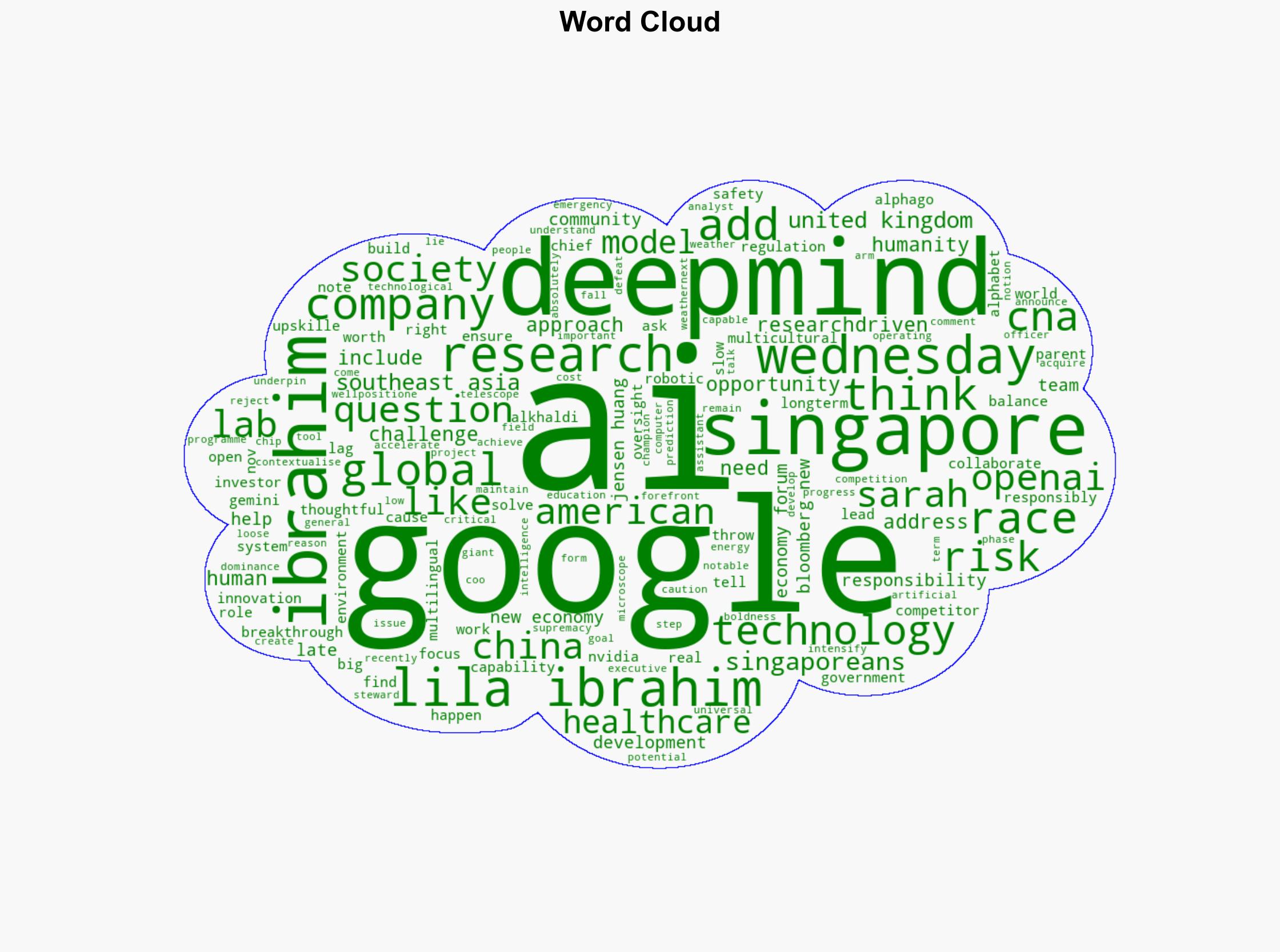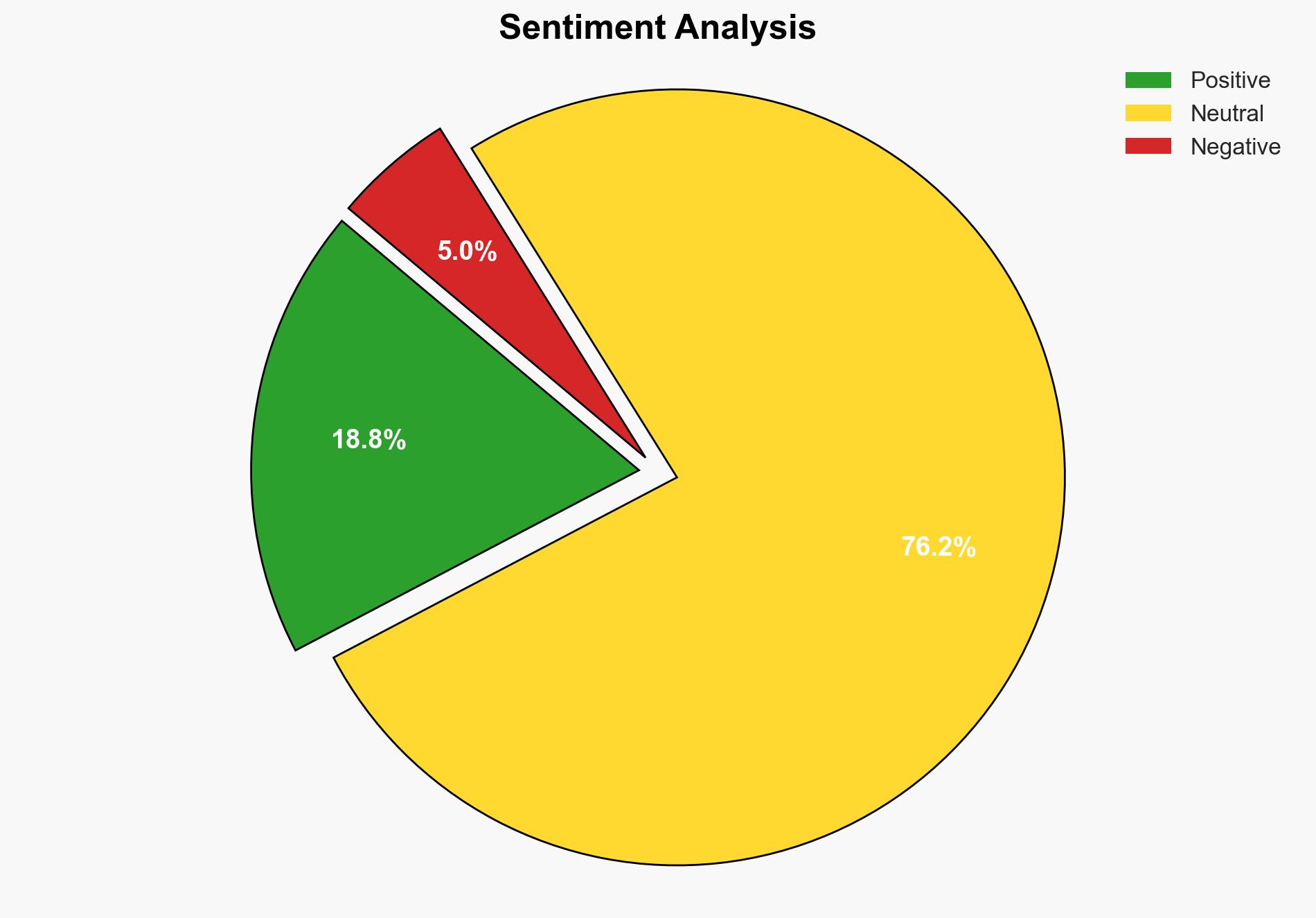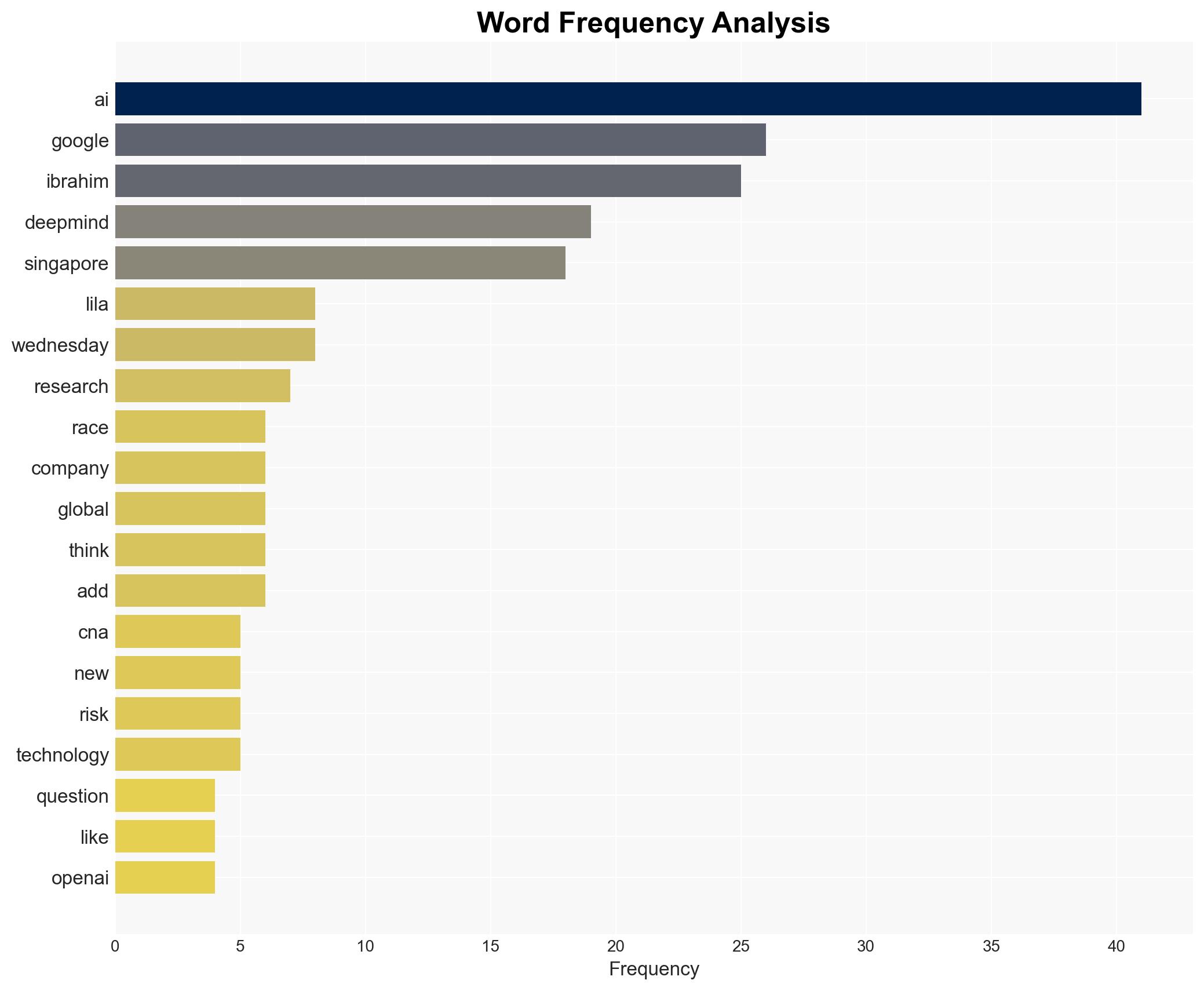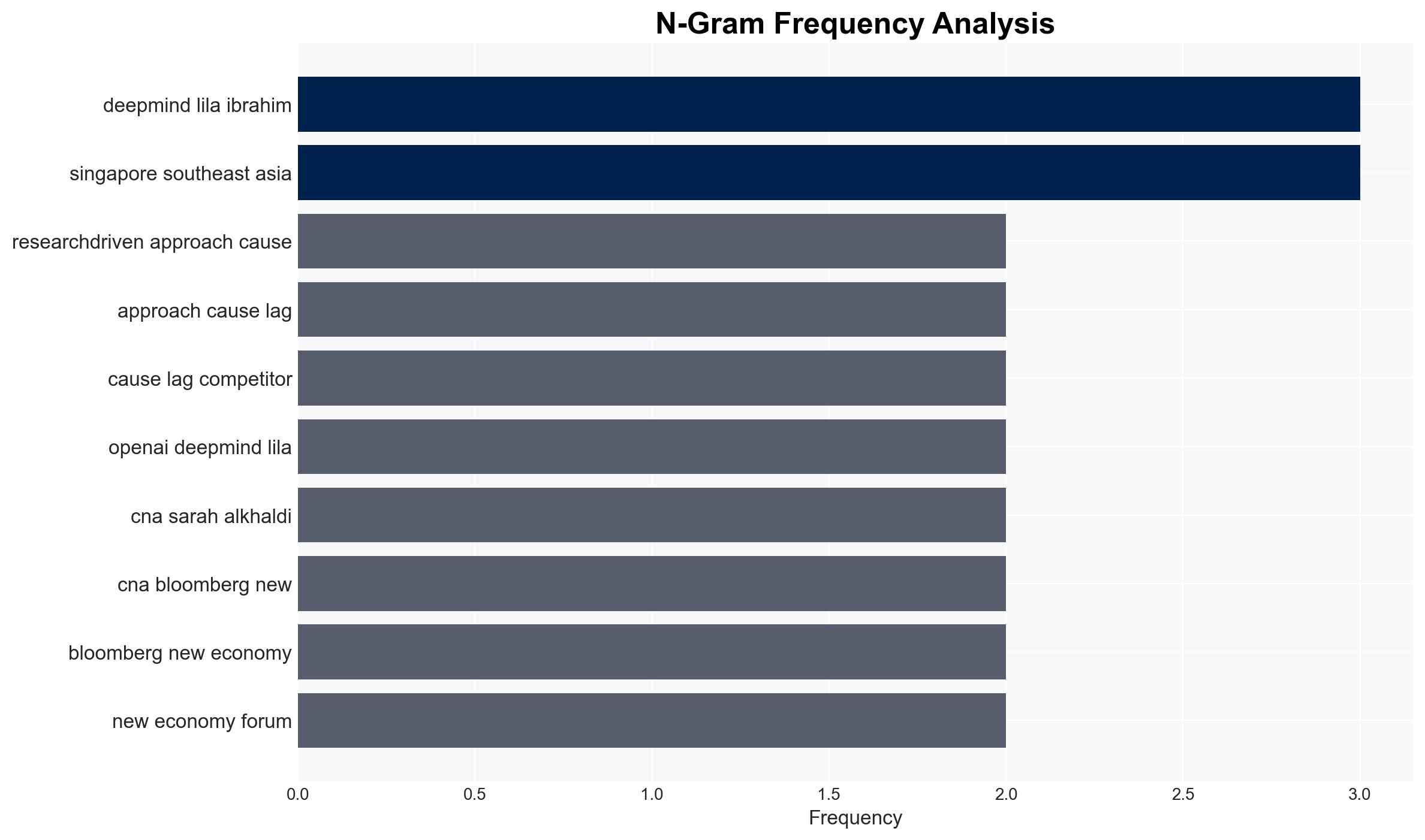Real AI race is about solving humanitys biggest challenges says Google DeepMinds COO
Published on: 2025-11-21
AI-powered OSINT brief from verified open sources. Automated NLP signal extraction with human verification. See our Methodology and Why WorldWideWatchers.
Intelligence Report: Strategic Analysis of AI Development and Competition
1. BLUF (Bottom Line Up Front)
With a moderate confidence level, the most supported hypothesis is that Google DeepMind’s approach to AI development, focusing on solving humanity’s biggest challenges, is a strategic positioning to differentiate itself from competitors like OpenAI. This approach may mitigate regulatory risks and align with global ethical standards, potentially providing a long-term competitive advantage. Recommended actions include monitoring regulatory developments and fostering partnerships to enhance AI’s societal benefits.
2. Competing Hypotheses
Hypothesis 1: Google DeepMind’s emphasis on solving humanity’s challenges is a genuine strategic focus intended to position the company as a leader in ethical AI development, which could lead to sustainable competitive advantage.
Hypothesis 2: Google DeepMind’s narrative is primarily a public relations strategy to counteract perceptions of lagging behind competitors like OpenAI, aiming to influence investor sentiment and regulatory frameworks.
Assessment: Hypothesis 1 is more likely due to the consistent emphasis on ethical AI development and the establishment of governance structures and external partnerships. However, elements of Hypothesis 2 cannot be entirely dismissed given the competitive pressures and investor scrutiny.
3. Key Assumptions and Red Flags
Assumptions: It is assumed that ethical AI development will be a significant factor in regulatory decisions and market acceptance. Another assumption is that Google DeepMind’s research-driven approach will lead to breakthroughs that provide competitive advantages.
Red Flags: Potential red flags include the possibility of overemphasizing ethical narratives without substantial technological advancements, and the risk of competitors achieving significant breakthroughs that could overshadow Google DeepMind’s efforts.
4. Implications and Strategic Risks
Political: AI development could influence global power dynamics, with countries like China potentially leading due to regulatory flexibility.
Cyber: Increased AI capabilities may lead to heightened cybersecurity risks, including misuse and bias in AI applications.
Economic: AI advancements could disrupt labor markets and economic structures, necessitating adaptive policies.
Informational: The narrative surrounding AI development could shape public perception and policy, impacting market dynamics and regulatory frameworks.
5. Recommendations and Outlook
- Enhance collaboration with international regulatory bodies to shape favorable AI governance frameworks.
- Invest in public-private partnerships to address societal challenges using AI, enhancing public trust and market positioning.
- Best-case scenario: Google DeepMind’s ethical AI approach gains global recognition, leading to leadership in AI governance and technology.
- Worst-case scenario: Competitors achieve significant technological breakthroughs, overshadowing Google DeepMind’s efforts and leading to regulatory disadvantages.
- Most-likely scenario: Google DeepMind maintains a competitive position through strategic partnerships and ethical AI development, with moderate technological advancements.
6. Key Individuals and Entities
Lila Ibrahim (Google DeepMind COO), Jensen Huang (Nvidia CEO), Google DeepMind, OpenAI, Alphabet (Google’s parent company).
7. Thematic Tags
Cybersecurity, AI Ethics, Technological Competition, Regulatory Strategy
Structured Analytic Techniques Applied
- Adversarial Threat Simulation: Model and simulate actions of cyber adversaries to anticipate vulnerabilities and improve resilience.
- Indicators Development: Detect and monitor behavioral or technical anomalies across systems for early threat detection.
- Bayesian Scenario Modeling: Quantify uncertainty and predict cyberattack pathways using probabilistic inference.
- Cognitive Bias Stress Test: Structured challenge to expose and correct biases.
Explore more:
Cybersecurity Briefs ·
Daily Summary ·
Support us





